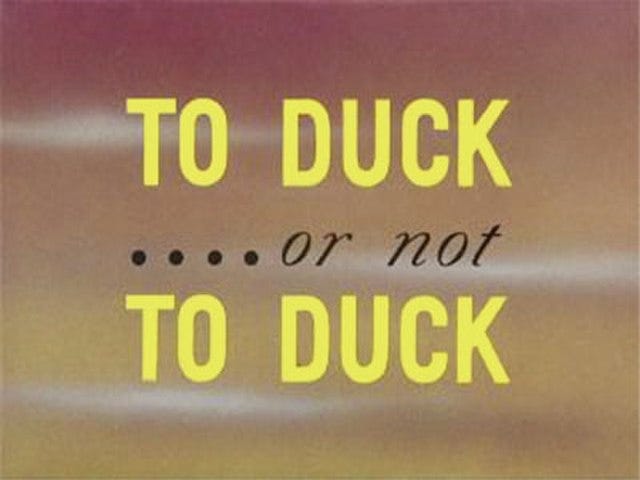

Discover more from Israel from the Inside with Daniel Gordis
"In the countries where we take refuge, they will kill us"
A week of David Bateman, Andrew Sullivan and Big Duck
Yes, noted the Washington Post this week, Jews and genocide are back in the news. But now, the story is not about the Jews as victims of genocide. This time, it’s Jews as its perpetrators. And it wasn’t even Israel accused of the mass killing. It’s Jews in America.
David Bateman, a high profile Utah entrepreneur and Republican political donor, sent a memorable email to his state’s business and political leaders, including Governor Spencer Cox.
I believe there is a sadistic effort underway to euthanize the American people. … I believe the Jews are behind this. … I believe the pandemic and systematic extermination of billions of people will lead to an effort to consolidate all the countries in the world under a single flag with totalitarian rule. … No one is reporting on it, but the Hasidic Jews in the US instituted a law for their people that they are not to be vaccinated for any reason.
It’s obviously lunacy, and Entrata, Bateman’s company, immediately dissociated itself from him as best it could (a combination, one assumes, of decency and survival instinct).
On one level, that’s the end of the story. But other recent stories, these from the left, offer a reminder that the assault—sometimes on Jews and sometimes on Israel (I’m not sure there’s as much a difference as some people claim)—is coming from all sides, from everywhere one turns.
The first was a podcast (posted on Jan 7 but I didn’t hear it until this week) in which Andrew Sullivan hosted Yossi Klein Halevi and interviewed him about Israel. Sullivan had previously hosted a notorious critic of Israel; some of his listeners said that fairness demanded that he have a conversation with a moderate, thoughtful Israeli. Sullivan went for Klein Halevi—and indeed, there could have been no better choice.
Now, for the record, I’m a big Andrew Sullivan fan. He’s smart, reads voraciously, is an interesting mix of positions (some of which I agree with, some of which I don’t, but he’s ridiculously articulate and always leaves me thinking). The conversation between two very thoughtful and nuanced people was fascinating. Sullivan pushed Klein Halevi very hard on some issues, but Yossi returned the volleys admirably.
I wholeheartedly suggest you listen to the entire podcast. It was honest, painful at times, and interesting; throughout, it was warm and respectful. So much so, in fact, that Sullivan said on several occasions things like (this one at the very end, but there were others) “it’s hard for me not to want Israel to succeed, and it’s hard for me not to see Israel as an astonishing story,” adding that he admires “what has been positively built there, which is stunning.”1
But it couldn’t end there, could it? For lambasting Israel has become de rigueur on the political left. That quote about Israel being an “astonishing story” came just seconds before the conversation ended. Still, just as the curtain was dropping, Sullivan wished Klein Halevi well, and closed by noting that he prayed
“for you, and for your country, and for those who find your country such an intolerable source of oppression and misery.”
It was a stunning about face. It sounded like Sullivan had been quite taken with Klein Halevi, but then, at the very last minute, remembered his audience. So in what may have been an act of survival instinct not unlike Entrata’s, he preserved his bona fides with the world of his listeners, adding the entirely gratuitous comment about “oppression and misery.”
Sullivan is not the only one who thinks (or thinks he has to say that he thinks) that Israel is a wellspring of oppression and misery, not the only one for whom being grotesque about Israel is simply the price of maintaining standing in the progressive world.
Which brings us to the brouhaha surrounding the “Jewish-based” PR firm “Big Duck” and its refusal to take on the Shalom Hartman Institue as clients, a story reported by JTA and then by SHI itself. As JTA reported it:
A marketing firm that has worked extensively with Jewish nonprofits has declined to work with one because of growing concerns among its staff members about groups with “significant programming in Israel.”
The Shalom Hartman Institute, a leading Jewish educational think tank, reached out to Big Duck, a Brooklyn-based worker-owned cooperative, because of Big Duck’s history of working with Jewish organizations in the past.
But Farra Trompeter, Big Duck’s co-director, told Dorit Rabbani, Hartman’s North America communications director, last week that the firm would not work with Hartman because Big Duck staff had concerns about the Hartman Institute’s activities in Israel, both officials said.
Now, those who know anything at all about the Hartman Institute know that Big Duck’s decision to make Hartman the test case for this new “policy” was very … well, ahem … “unwise.” It would be hard to think of an outfit that is more intellectually acute, moderate, open to a plethora of voices, openly critical of Israel’s policies on numerous issues, works with Jews and Muslims together, religious and secular —you get the picture. (For the record, I have no affiliation with the Hartman Institute.) Big Duck later claimed that it did not to know about that dimension of Hartman, but to believe that, you’d have to believe that they turned down working with SHI without so much as reading the SHI website.
Ooops.
Realizing that they’d stepped in it, big time, Big Duck tried to make the best of things. But you know those conversations where someone tries to wiggle out of something but just sinks deeper and deeper (remember those conversations with your teenage kids that went something like “I never borrowed your camera … and anyway, when you lent it to me, it was already broken”)? Yeah, it was kind of like that.
“Big Duck does not decline work with organizations solely due to their position on BDS or presence in Israel,” Farra Trompeter, Big Duck’s co-director said.
Ouch. The “sin” here wasn’t being situated over the Green Line (as it was with the Ben and Jerry’s Boycott, about which we wrote here), or being pro-annexation, or pro-settlement expansion. Or whatever. The sin was having a “presence in Israel.”
The problem isn’t Israel’s policies. The problem is Israel. Good to know where we stand. (Full disclosure … about a decade ago, an organization with which I was affiliated worked briefly with Big Duck, under previous management. My colleagues and I felt it wasn’t a good fit, so we ended the association.)
Now you can understand why Trompeter (who as she noted in Big Duck’s response defines herself as queer and Jewish) was quite right to mention BDS and “presence in Israel” in the same sentence. For while many people like to think of BDS as an “anti-occupation” organization, that’s not what it is at all. Take a look at their website. Among other platforms, BDS is committed to boycotting Israel as a way of “respecting, protecting and promoting the rights of Palestinian refugees to return to their homes and properties…”2
Sound reasonable? Here, it’s important to remember that UNRWA (the UN body which deals with Palestinian refugees) defines refugees differently than they are defined in any other region or conflict. For UNRWA (and it is only the Palestinians, by the way, who have a UN body devoted exclusively to their cause), refugees are those who fled or were forced out, as well as all their descendants. Therefore, while some 700,000 Palestinians became refugees around 1948, the number of people defined as Palestinian refugees according to UNWRA is approximately five million (others claim that there are there are “more than 7 million Palestinian refugees scattered around the world”). Obviously, admitting these five million people into Israel would immediately end the Jewish majority in the country, thus ending Israel as a Jewish state. It would also lead to economic collapse, thus ending Israel … period.
BDS knows that. One has to assume that Big Duck does, too. Selling Israel down the river is simply what you have to do to be part of that progressive world.
Big Duck later claimed that they had assumed that Hartman would not want to work with an organization like Big Duck, “whose employees and clients hold a range of views on the Israeli government’s policies and practices.” Believing that requires a massive stretch, of course. Far more likely is that some of those employees had had enough of working with Israeli clients, and management either agreed, or caved in to fear of a younger generation that knows no nuance.
That’s not a new phenomenon. Those who read it years ago were undoubtedly reminded of Bari Weiss’ epic resignation letter from the NYT, and her pointing to precisely this phenomenon.
Op-eds that would have easily been published just two years ago would now get an editor or a writer in serious trouble, if not fired. If a piece is perceived as likely to inspire backlash internally or on social media, the editor or writer avoids pitching it. If she feels strongly enough to suggest it, she is quickly steered to safer ground. And if, every now and then, she succeeds in getting a piece published that does not explicitly promote progressive causes, it happens only after every line is carefully massaged, negotiated and caveated.
Israel is toxic. Management either agrees or won’t take a stand.
Which brings us to Bibi. When you weren’t looking, Bibi has been remaking his image for a post-political life. He’s apparently likely to sign a plea bargain which would end the indictments against him, sparing him from jail time, in exchange for which he would (apparently at present) leave the political arena for a number of years. What is emerging instead of Bibi-the-politician (who cared only about himself) is the old Bibi, the well-read, historically insightful, scholarly and analytic Bibi, a kind of Churchill-post-war.
One example of this is an extraordinary podcast he did with one of Israel’s leading journalists, Gadi Taub. It’s highly worth listening to if you speak Hebrew, or reading the English translation in Mosaic Magazine if you don’t.
Part way through the interview, Bibi makes some fascinating comments about Mark Twain’s visit to Vienna, where Jews were at the upper echelons of business, culture and more, and what Herzl had to say that changed Twain’s assessment.
Here’s Bibi at some length:
And when Twain came, he met all these geniuses, one after the other. Freud. Others. They were all there! And he was stunned. He saw it, and then he wrote what he wrote about the Jews and their contribution to humanity. And he believed in this power, which in itself could establish the future of the Jews, and consequently also the future of humanity.
And then he met Herzl. And Herzl was of a different view entirely. … He said that the prominence of the Jews was also their weakness. … to the contrary, their prominence invited the attacks. When you stand out, when you’re successful and weak, you absorb the blows.
… While Twain was optimistic about the Jews, Herzl was very pessimistic. He thought of it as a giant house of cards: this wonderful, golden, shining thing built by the Jews of Vienna. He said it will collapse. And he was right. He saw it. And in this sense, he saw what others—I don’t know if they just didn’t see, but that they refused to see. He understood that it was all foam, that it had no meaning.
If you’ve read lots of Bibi over the years, you know that when he says “they refused to see” or it was a “giant house of cards [that] … had no meaning,” he’s speaking not only about Vienna. Not only about Europe.
Herzl’s greatness, Netanyahu argues, was that Herzl could spot danger where other Jews couldn’t. “The ability to identify danger in time is a prerequisite for the survival of any living organism. …” continued Netanyahu. “The Jews lost the ability to spot danger in time.”
Herzl himself put it much more bluntly in his diary: “So they will chase us out of these countries, and in the countries where we take refuge they will kill us.”3
Herzl would not have been surprised by David Bateman—he was long used to that form of anti-Semitism. Nor would the more elegant Sullivan have stunned him—that, too, was already afloat in Europe, though obviously not yet about Israel. Would Herzl have been surprised to see instinctive bashing of Jewish statehood coming from Jews? I don’t know.
But Deborah Lipstadt, who knows as much about contemporary anti-Semitism as anyone on the planet, wasn’t.
“It’s shocking,” Lipstadt said in the FB post above about Big Duck, “but it’s not surprising.”
Why is it not surprising? Because it’s relentless, week in and week out, directed at Jews or directed at Israel. From the left and from the right. From Bateman to Sullivan to Big Duck, each different in myriad ways, the chiseling and attacking is relentless. (And we haven’t so much as mentioned Colleyville.)
It’s not surprising. And truthfully it’s no longer all that shocking, either. It’s hunting season. Recognizing that might help explain some things that this little country of ours does that get people incensed. Sometimes we’re right, sometimes we’re wrong.
But what animates Israel is the fact that long ago, because we were fashioned in Herzl’s image, this was a place that cultivated “the ability to spot danger in time.” And that has made all the difference.
Fauda, Tehran, The Jews are Coming and more … the prodigious talents of Natalie Marcus.
Natalie Marcus is a highly acclaimed, award-winning, screenwriter and director based in Tel Aviv. For the past 10 years, Marcus has been a writer and show runner in Israel’s highest rated, comedy, satire, and drama series. Marcus is currently writing for the 4th season of Fauda (Netflix) and the 2nd season of Tehran (Apple TV).
Marcus is the creator and show runner of the acclaimed historically themed sketch show The Jews are Coming, winner of the Israeli Academy Award for the best entertainment show.
Marcus is the creator, director and show runner of the show Cramped, winner of the Israeli Academy Award for best kids comedy and best script in Kids TV show and winner of The Kid's Choice award for “Best Comedy.”
Marcus teaches comedy writing and lectures about writing and Jewish history all around the world. She joins us this week to speak about Israeli TV and culture, and her role in this extraordinary slice of Israeli life.
An excerpt of our conversation is here. The full episode will be posted on Thursday for paid subscribers.
Our twitter feed is here; feel free to join there, too.
The Dishcast with Andrew Sullivan, “Yossi Klein Halevi On Zionism,” January 7, 2021. (1:18:52-1:20:14) , the second quote begins at 1:20:14
Emphasis added
Theodor Herzl, The Complete Diaries of Theodor Herzl (New York: The Herzl Press, 1956), 131-132.









